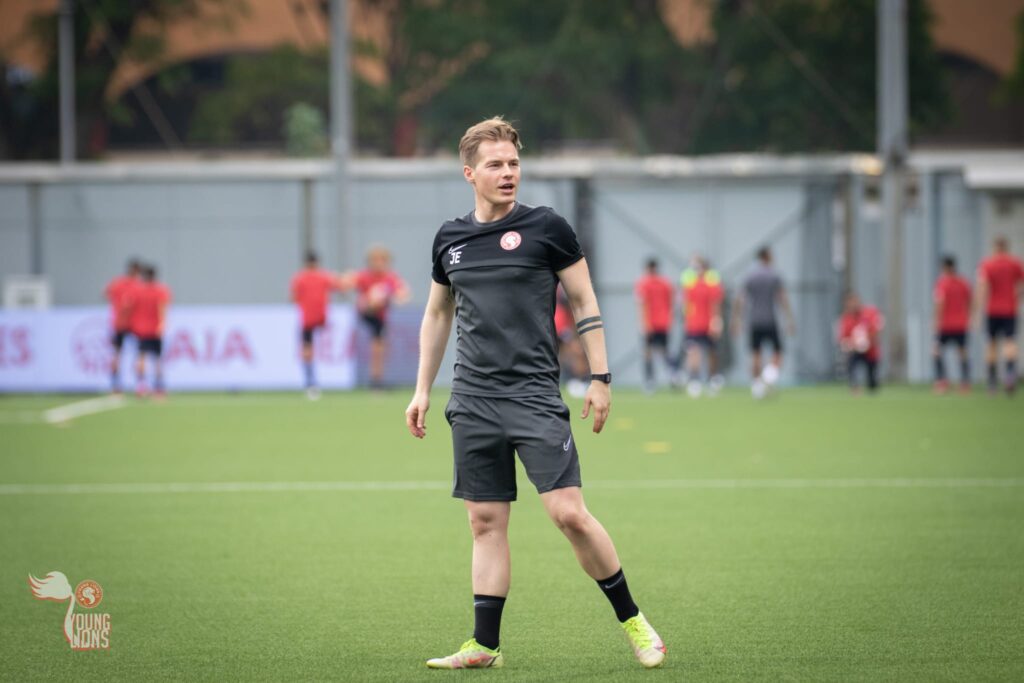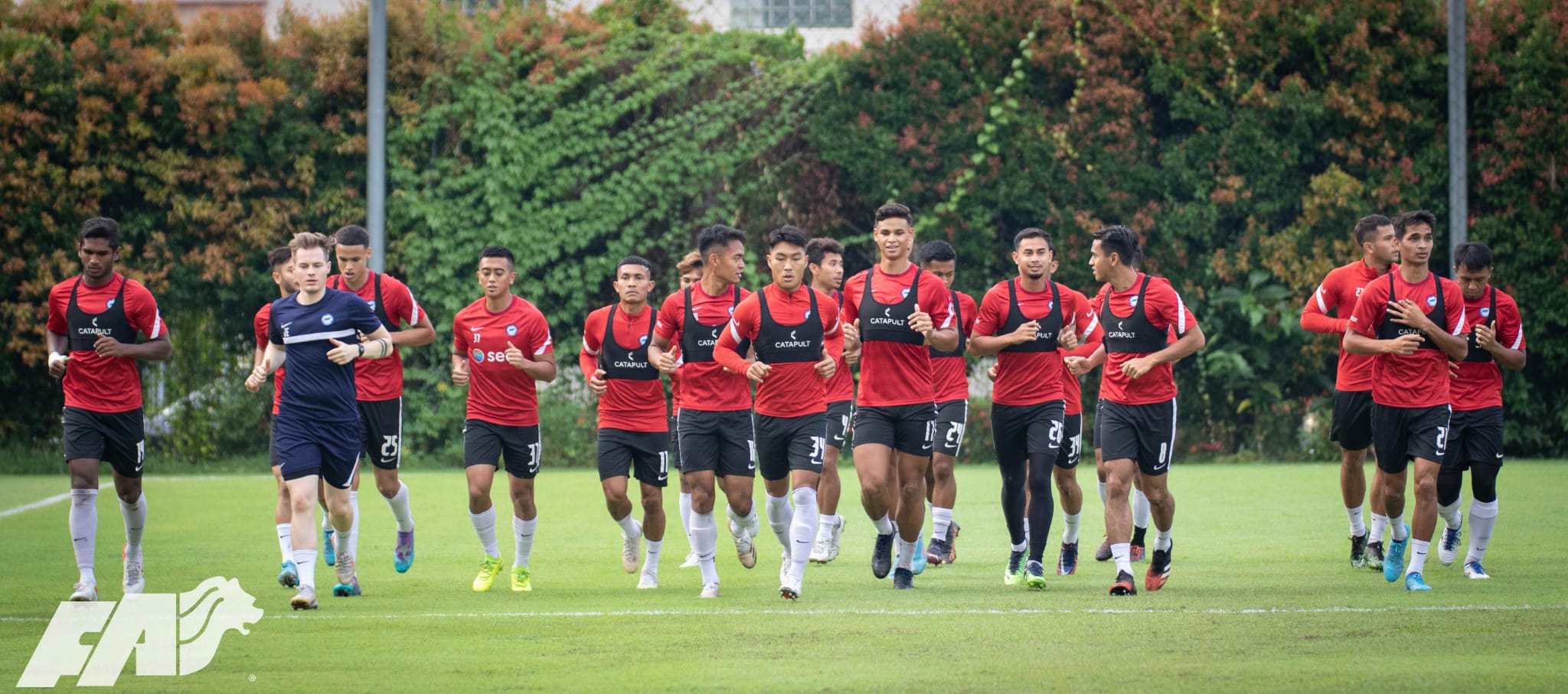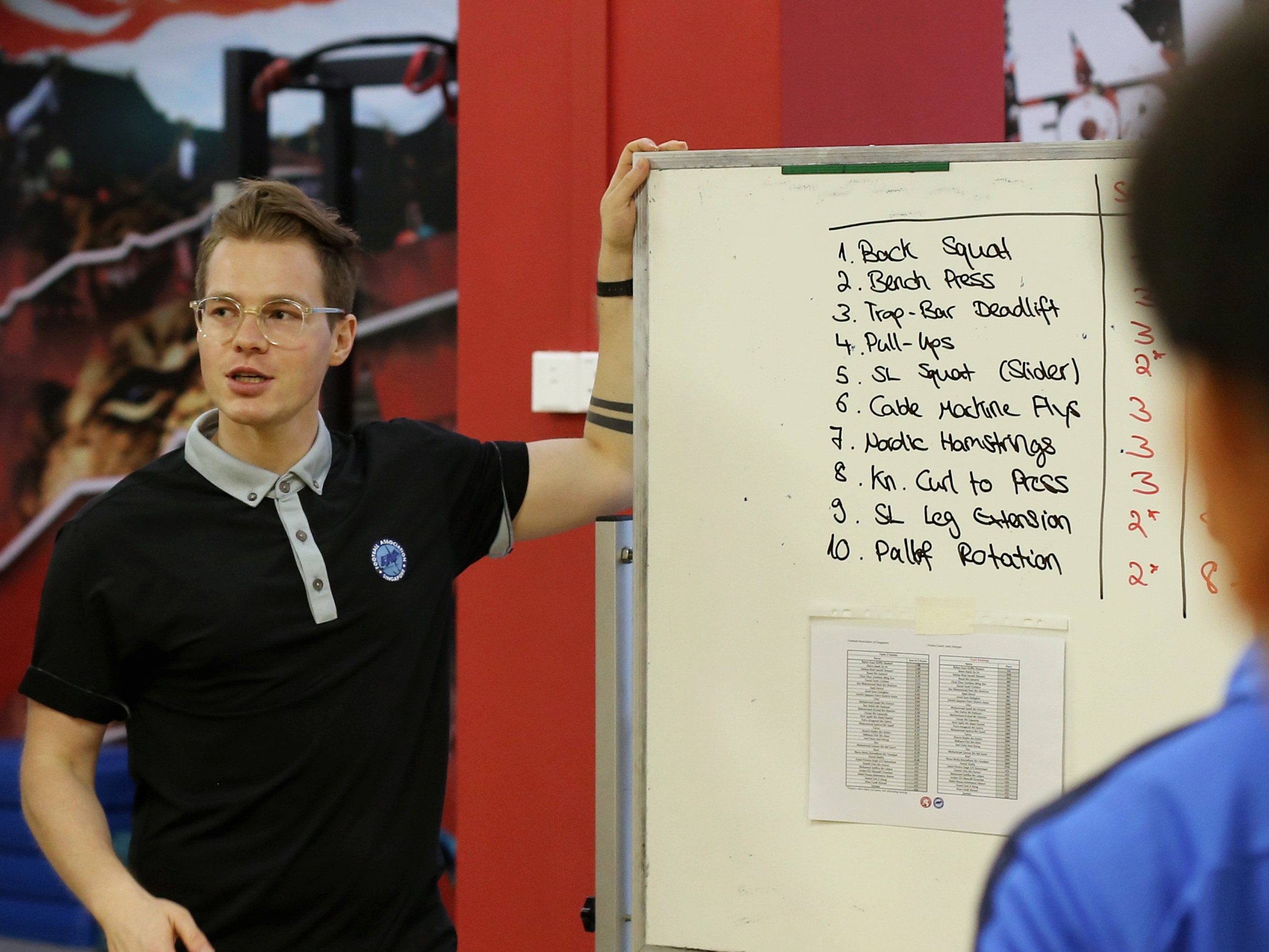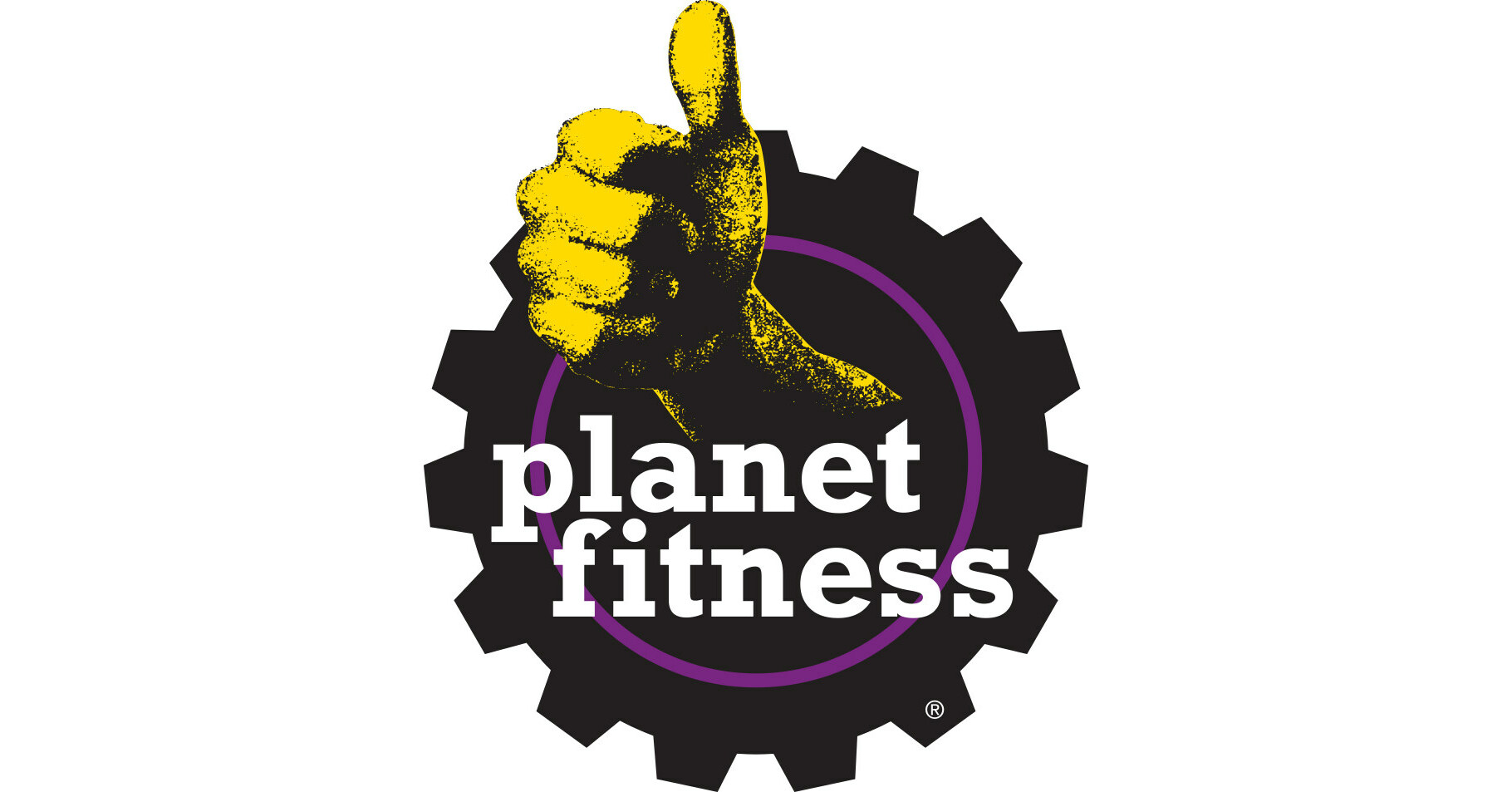Fitness
A day in the life of a national team’s fitness coach

In 2033, the global sports industry is predicted to be worth over US$260 billion, 60% more than the current annual revenue of US$159 billion, according to Two Circles.
It’s easy to focus on the athletes as they are the faces of the sport. Yet, behind every successful athlete, a team of heroes works tirelessly to enhance performance and minimise injuries.
Among them are fitness coaches whose expertise can make a difference between winning and losing. One of them is Jens Eiberger, the fitness coach for Singapore’s national football team.
The journey to becoming a bridge between science and sports
Born and raised in Germany, Eiberger was surrounded by football from a young age. The sport wasn’t just a pastime — it was his passion.
“I always knew I’d either pursue a career as a football player or study a degree that allowed me to stay close to the game,” he recalls.
At 18, he joined the University of Stuttgart, earning a Bachelor of Arts in Sports Science. While studying, he also completed certifications in coaching, laying the foundation for a career that blends the worlds of sciences and sports.
Eiberger’s first role post-graduation was an internship as a sports science and fitness coach at FC Heidenheim, a professional football club in Germany. Wanting more, he moved to Sweden in 2016, taking up a unique role at Höganäs AB. Here, he introduced employee fitness programmes and explored the intersection of corporate wellness and sports.
“Moving to Sweden was the start of me learning to enjoy life,” says Eiberger.
“It allowed me to meet new people and learn a new language.”
“You can only get the best out of you if you challenge the best.” — Jens Eiberger. Image source: Young Lions Football Club
Following his time in Sweden, Eiberger returned to Germany to pursue an international master’s degree in Performance Analysis in Sports, a decision that would take him across Europe and beyond.
Over the course of his degree, he spent semesters at the Lithuanian Sports University and the University of Trás-os-Montes and Alto Douro, gaining exposure to different approaches of sports science while also playing football for both universities.
Eiberger’s academic journey soon became global. He moved to China, where he balanced coaching and personal training while completing his master’s degree.
Then, he moved to the US to work with top-tier athletes from the UFC, NFL, NBA, and MLS.
He briefly returned to Germany before deciding to relocate to Myanmar as an assistant head of sports science at the Myanmar Football Federation, where he faced new challenges in an unstable environment.
“Getting a job in Myanmar was dangerous, especially considering how dangerous the country can be. So, that was a big step out of my comfort zone and a difficult time for me,” he says.
Now settled in Singapore, Eiberger has spent the past three and a half years helping to shape the national football team as their fitness coach.

In addition to his job as a fitness coach, Eiberger participates in sports workshops with the Football Association and local schools of Singapore. Image Source: Football Association Singapore
A typical day in the life of a fitness coach
Eiberger’s day doesn’t follow the typical nine-to-five schedule. As a fitness coach, he works around the needs of his athletes, often starting his day after most of Singapore’s office workers have clocked in, usually around 10 a.m. to 11 a.m.
Depending on the day, his mornings are dedicated to individual training sessions, often tailored for full-time and part-time national football players. These sessions, which last up to 90 minutes, focus on improving specific aspects of performance, from strength and agility to injury prevention.
On most days, he has lunch. On some days, he skips it when meetings on player selection and team management strategy pop up.
Then, Eiberger heads to the field in the afternoon to prepare for the evening’s official team training.
By 4 p.m., he is setting up the field, ensuring everything is in place for a smooth session. At 5:30 p.m., he leads preactivation sessions for early-comers – a vital part of the routine that ensures players’ muscles are ready to perform at their peak.
Preactivation is key for high-performance athletes like footballers. It can be said to be a form of workout that wakes up the muscles before using them to their fullest potential and allows for proper muscle activation before, during, and after playing.
It’s a strategy used to reduce the risk of injury, according to the International Soccer Science and Performance Preparation.
Official training starts at 7 p.m., where Eiberger plays a vital role in the early stages, assisting with fitness and technical exercises. The day wraps up around 9 p.m. with recovery mobility exercises, helping the players prepare for the next match and lowering the risk of injury.
The team often shares dinner after training, and Eiberger doesn’t typically head home until 10 p.m. or 11 p.m.
It’s a demanding schedule, but one that’s become second nature for those working in high-performance sports.

Eiberger believes that having an understanding towards athletes is important, as we always have to remember that they too are human with emotions. Image source: Jens Eiberger
Advice for aspiring sports scientists from a fitness coach in high-performance sports
For those dreaming of a career in sports science, Eiberger offers clear advice: “I want those looking to pursue a career in sports, specifically sports science, to know that you can achieve a successful career in the field.”
He acknowledges that parents can often be a barrier, especially when pursuing a degree in sports. They’ll usually question plans after completing the degree, how one would earn money with a degree in sports, or whether their child will end up working in a gym.
This Singaporean Reddit user is an example. They wish to pursue a degree in sports management through the Early Admissions Exercise at a Higher Nitec. However, their parents said they should seek an “IT course instead as they can earn more money from it.” This resulted in the user applying for a game development course in immersive games despite having zero interest in it.
He stresses the importance of obtaining a degree and, where possible, pursuing a master’s or PhD degree to gain a competitive edge.
“If you want a leadership role, a master’s degree is almost essential,” he says.
Beyond formal education, Eiberger encourages something less conventional: volunteering.
“Volunteering may not seem beneficial at first, but it teaches you essential skills, from working with athletes to understanding how the sports industry operates.”
At the end of the day, working in sports requires passion, perseverance, and the willingness to keep learning.
“Athletes are people, just like you and me,” he says. “When you understand that, you’ll know how to help them become their best selves — both on and off the field.”









